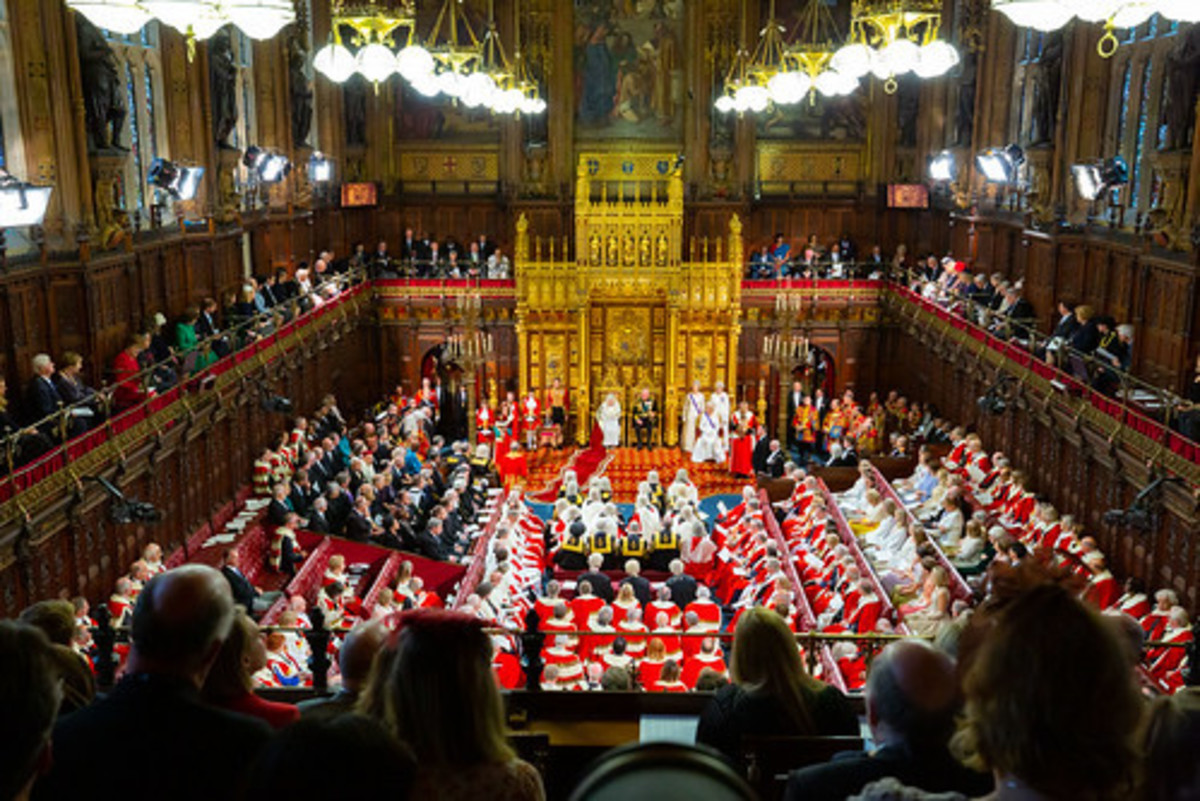Russian (Parliament Politic Magazine) – Two British peers were among the 50 individuals who attended a party hosted by the Russian ambassador to the UK at his luxurious residence in west London last month. The purpose of the gathering was to commemorate the establishment of an independent Russia following the dissolution of the Soviet Union.
During the event, Andrei Kelin, the Russian ambassador, delivered a speech in which he attempted to rationalize his country’s controversial invasion of Ukraine. Among the distinguished guests were Lord Balfe from the Conservative party and Lord Skidelsky, an independent member of the House of Lords.
Well-known British Peers Attend the Russian Ambassador’s Party
An article published by the Sunday Times provides a detailed account of the event, accompanied by captivating photographs capturing Kelin’s presence. It is worth discussing that Kelin, who is currently prohibited from entering the UK parliament, delivered a speech. There was an audience of approximately 50 individuals. Among the attendees were Russian embassy personnel, foreign diplomats, and a handful of British citizens.
Kelin reportedly stated that for Russia to progress effectively, it must address substantial security threats. This statement alludes to Moscow’s invasion of Ukraine in February, which aimed to overthrow the elected government of President Volodymyr Zelenskiy. Furthermore, the ambassador criticized Britain for committing a significant strategic error by adopting a confrontational stance toward Moscow.
The United Kingdom, alongside its Western allies, has been a steadfast advocate for Ukraine. It has provided both military support and humanitarian aid since the onset of the war. They want to assist Kyiv in reclaiming its internationally acknowledged borders.
In an interview with The Guardian, Balfe acknowledged his attendance at the event. He engaged in a perfunctory conversation with the Russian defense attaché. The peer expressed his conviction that a negotiated settlement, wherein Ukraine may have to relinquish certain territories to Russia, will be required.
MEPs Balfe and Skidelsky Support Russia
Balfe, a former Labour MP who defected to the Conservatives in 2002, has a history of expressing sympathy towards Russia. During the Skripal poisoning crisis in 2018, Balfe aligned himself with Russia’s calls for an investigation into the nerve agent used.
Skidelsky is an economist and crossbencher. He has been associated with the Conservatives, Labour, and the SDP, and voiced his opposition to the Russian invasion of Ukraine. However, he attended an event on Russia’s national day to demonstrate his respect and affection for the Russian people, particularly given the circumstances.
Additionally, Skidelsky served as a non-executive director of Russneft, a Russian oil company, from 2016 to 2021. Following Moscow’s invasion, he wrote a letter condemning the action. He also questioned why the West had not committed to prevent NATO from expanding its membership to Ukraine.
“Ukraine, quite frankly, is a country facing numerous challenges. It was hastily formed by Churchill and Stalin in the final stages of World War II. Furthermore, Balfe expressed his belief that “Crimea undeniably belongs to Russia” and that Moscow has valid territorial claims over Donetsk and Luhansk. He also emphasized the importance of engaging in negotiations regarding a land corridor to Crimea.
Read More: Budgeting for Change: The Impending Debate on Government Spending in UK Parliament
Russian Ambassador’s Bleak Outlook for London’s Confrontational Approach to Moscow
London is determined to take the forefront in countering Russia, and as a result, one should not anticipate a cessation of its confrontational stance in the foreseeable future, according to Russian Ambassador to the UK, Andrey Kelin, in an interview with TASS. The British capital has formally committed itself to prioritize the support of Ukraine, particularly in military terms.
It is highly unlikely for this policy to be abandoned by the current government, or even by a potential future administration that may emerge following the upcoming elections next year, potentially led by representatives of the Labour Party. The ambassador emphasized that there exists a consensus on this matter.
Kelin observed that there was a unanimous consensus within the ruling Conservative Party. The backbenchers, who are members of the ruling party but do not hold government positions, are engaged in a competition. They want to outdo each other by shouting anti-Russian slogans and adopting more hostile stances toward Russia. This trend is expected to persist, particularly as the UK endeavors to solidify its anti-Russian alliances. It will guide them within the framework of its European strategy.


